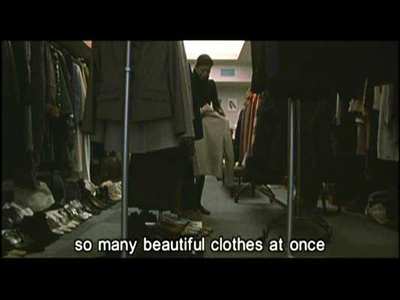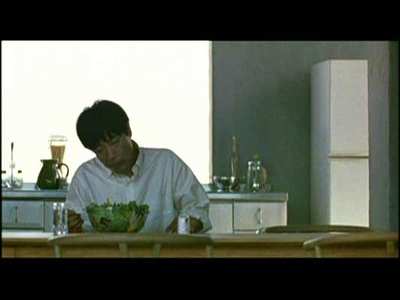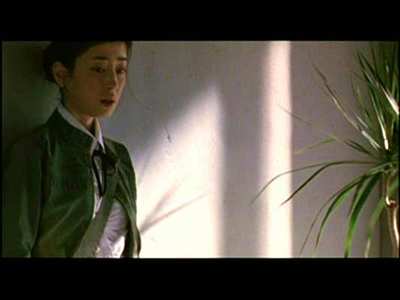Review of Tony Takitani
Introduction
Tony Takitani (Issei Ogata) is probably the most alienated man in the world. Blessed (or cursed) with a western name, he has no friends, no family save his eccentric father, who`s almost a stranger. He`s an artist with little passion or heart in his work, paying the bills by putting his skills to use designing covers and prints of machinery; objects without soul.
When a beautiful new client (Rie Miyazawa) catches his eye, he falls into a relationship, then a romance - finally a marriage which offers him a reprieve from his seclusion by the world. But she`s addicted to shopping, and it`s an addiction that impinges on their new relationship.
Tragedy strikes when Tony needs it the least, forcing him to fight to keep that doorway to estrangement firmly shut.
Nominated for a Grand Jury prize at Sundance, Tony Takitani is director Jun Ichikawa`s adaptation of a short story by Haruki Murakami, first published in the West within the pages of The New Yorker.

Video
Presented in a 1.85:1 non-anamorphic letterbox format, Tony Takitani has been given an NTSC to PAL transfer, resulting in a very soft image, with a muted colour balance. Most scenes look overly drab and grey, with the blacks having a particularly light hue. This lack of clarity leads to an extra sense of coldness in the frame.
Despite an asset to the storytelling, this has to be looked at as a DVD oversight - the image has an extra murkiness that detracts from the actual intended cold, hard composition of the movie.

Audio
Japanese Dolby Digital 2.0, an audio track that`s not particularly standout.
The `burned in` English subtitles are clear and concise, presented in an overly large font. Still, they`re certainly of a higher standard then most optional captions.
There`s very little incidental music within the film. However, there is a beautiful and haunting piano theme from Ryuichi Sakamoto that re-occurs throughout. Simple in arrangement, but lovely.

Features
To much shock and delight, the DVD features a thoroughly insightful 70 minute `making of` featurette.
Film stills gallery
Production stills gallery
Theatrical trailer

Conclusion
Tony Takitani is the consummate example of minimalist filmmaking; a tale of loneliness quelled by love, but resurrected by loss, filled with lingering scenes of nothing in particular. Jun Ichikawa has done a wonderful job of capturing the spiritual isolation of not only Tony Takitani, but of contemporary Japan as a whole. Witness a woman who has to shop to feel alive (brought to fruition by a series of shots of Mrs Takitani in various states of foot-dress), Schozaburo Takitani, a man who`d rather devote all his time to music than spend time with his son, and of course Tony himself, his plight casting a spell over the viewer, absorbing them into a film which is actually very light on narrative. What story there is is dialogue-light, with most detail conveyed by an anonymous narrator, his sentences often finished by the characters in the film talking out loud. These moments are both near fourth wall collapse and inventive insight - they`re talking to the viewer, but they`re not. They`re talking to themselves. Tony Takitani isn`t thill-a-minute territoy. Instead, it`s a haunting film, a pathos filled portrait of one man`s seemingly destined-from-birth state of loneliness and alienation. Even if you`d never normally give a film like Tony Takitani the time of day, you`ll be sure come away with something from it. Even if you don`t know exactly what it is.
Your Opinions and Comments
Be the first to post a comment!